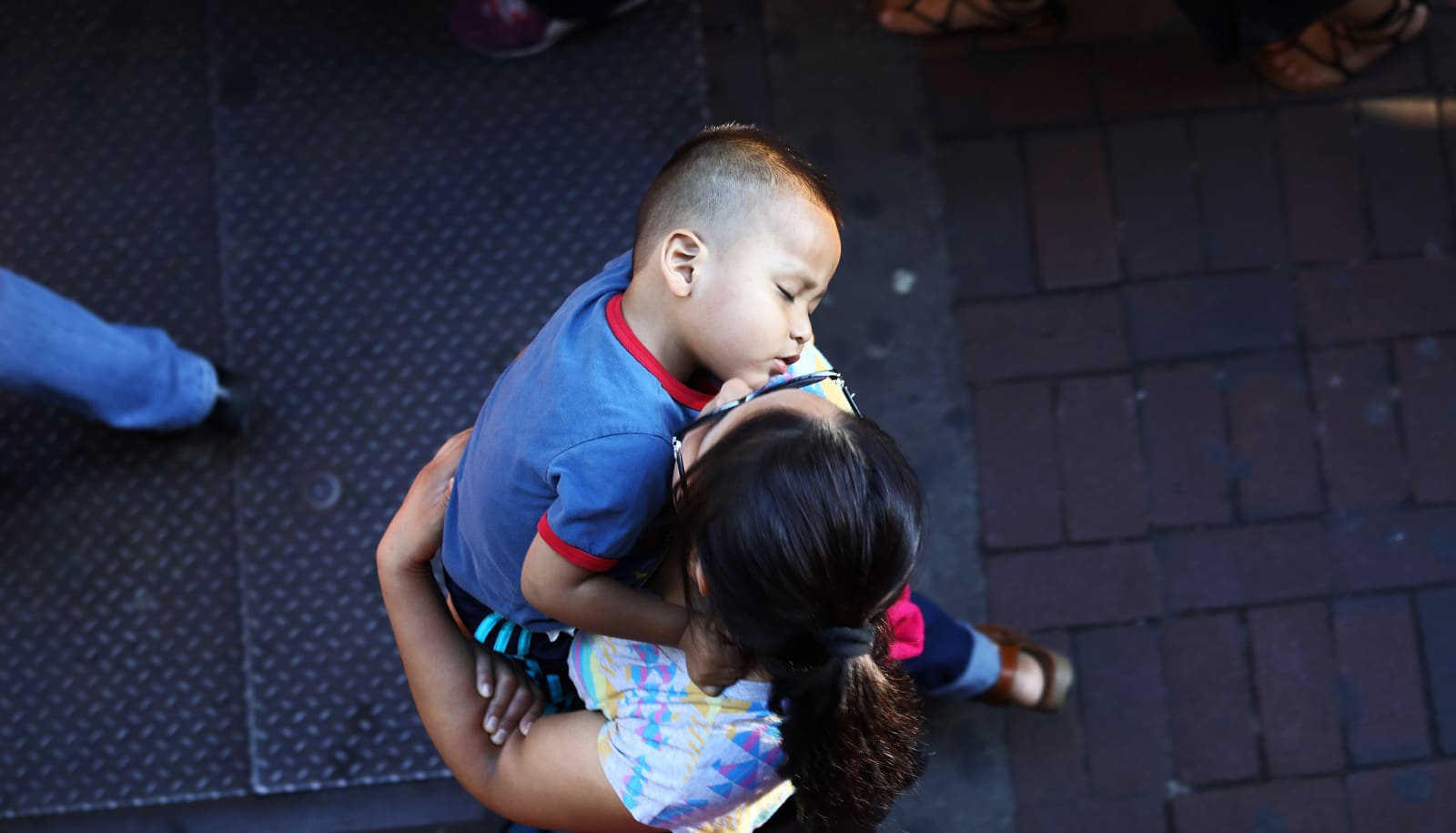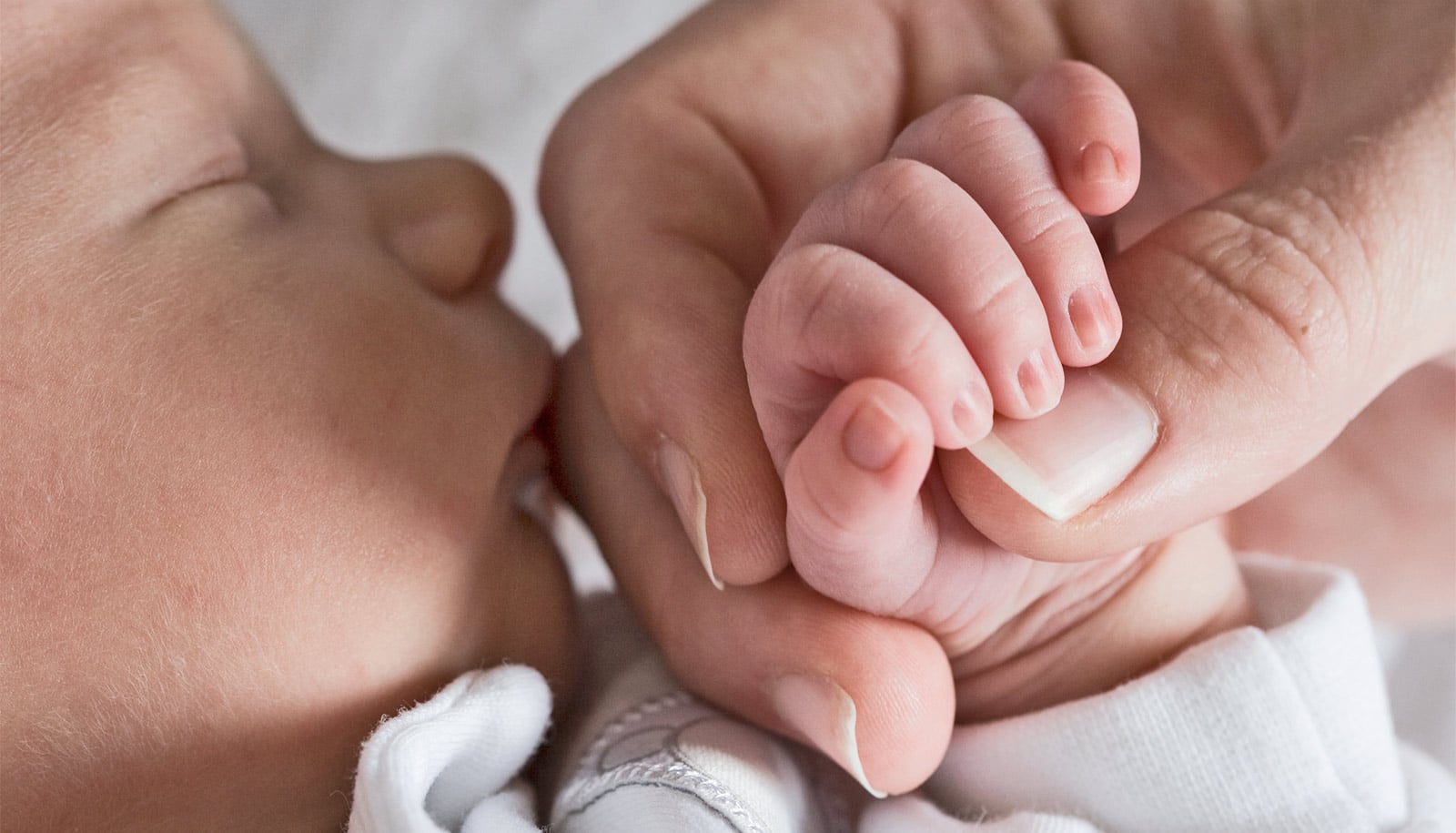Children born in the United States of undocumented immigrant mothers are significantly more likely to participate in a federal nutrition program if the moms are DACA-eligible and therefore less worried about deportation, a study suggests.
The study of nearly 2,000 US citizen children and their mothers adds to growing evidence that the Deferred Action for Childhood Arrivals immigration policy benefits poor children of immigrants who are not immigrants themselves, researchers say.
Nearly 7% of all children in the US have at least one undocumented immigrant parent.
“Our study suggests that immigration policies that mitigate fear of deportation for other family members could enhance vulnerable citizen children’s uptake of important health-related services,” says Maya Venkataramani, assistant professor of medicine at Johns Hopkins University.
“This highlights the importance of considering the multi-generational spillover effects of immigration policies.”
For the study, which appears in JAMA Pediatrics, researchers looked at participation in the Special Supplemental Nutrition Program for Women, Infants and Children—known as WIC—among citizen children whose mothers either were or were not likely eligible for DACA.
Previous studies have demonstrated WIC’s effectiveness in improving child health outcomes.
The researchers knew of anecdotal evidence that immigration policies influence participation in social services by immigrant adults and wanted to explore “whether favorable policies targeting parents are associated with improved participation among citizen children,” Venkataramani says.
The findings show that a child was 12.3 percent more likely to participate in WIC after DACA implementation than before, if his or her mother met the DACA eligibility requirements.
“Children of undocumented immigrant parents represent a vulnerable group who are at high-risk for poor socioeconomic and health outcomes over time,” she says. “They are the very children who stand to benefit from participation in health and social service programs for which they are eligible.”
DACA allows certain individuals brought to the United States without documentation as children to receive a renewable two-year deferral of deportation. Those with DACA status are eligible for work visas and other public benefits, including food assistance.
Nearly 7 percent of all children in the United States have at least one undocumented immigrant parent, according to the Migration Policy Institute. DACA is an Obama-era program. President Trump set a March 5, 2018, deadline to end DACA, but the courts ordered the government to continue accepting renewal applications.
WIC provides services including supplemental nutrition, nutrition counseling, breast-feeding support and referrals to health, welfare, and social services for qualifying low-income children and pregnant and postpartum women.
Taking DACA from immigrant moms may hurt their US-born kids
The researchers used data from the 2010–2015 National Health Interview Survey, a nationally representative annual survey conducted by the National Center for Health Statistics to explore WIC participation among children 5 years of age and younger whose mothers were Hispanic, noncitizen, and between 19 and 45, had lived in the United States at least five years and received at least a high school diploma or GED certificate.
Mothers were considered DACA-eligible if they met DACA age eligibility criteria when DACA began in 2012, including having immigrated prior to age 16 and being less than 32 years old.
Overall, the researchers’ analysis covered 1,911 children, 33.8 percent of whom had mothers who likely met DACA eligibility criteria. Overall, 43.1 percent of children in the study received WIC during the study period.
Additional researchers from Johns Hopkins and from the University of Pennsylvania are coauthors of the study.
Source: Johns Hopkins University



